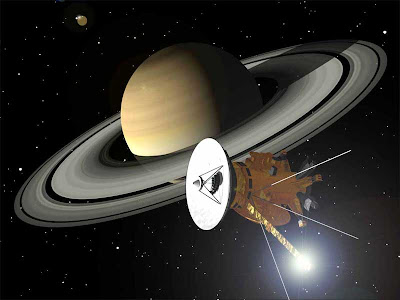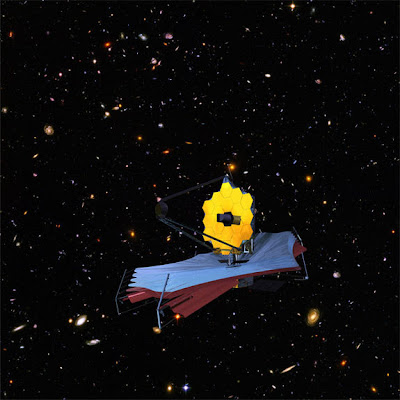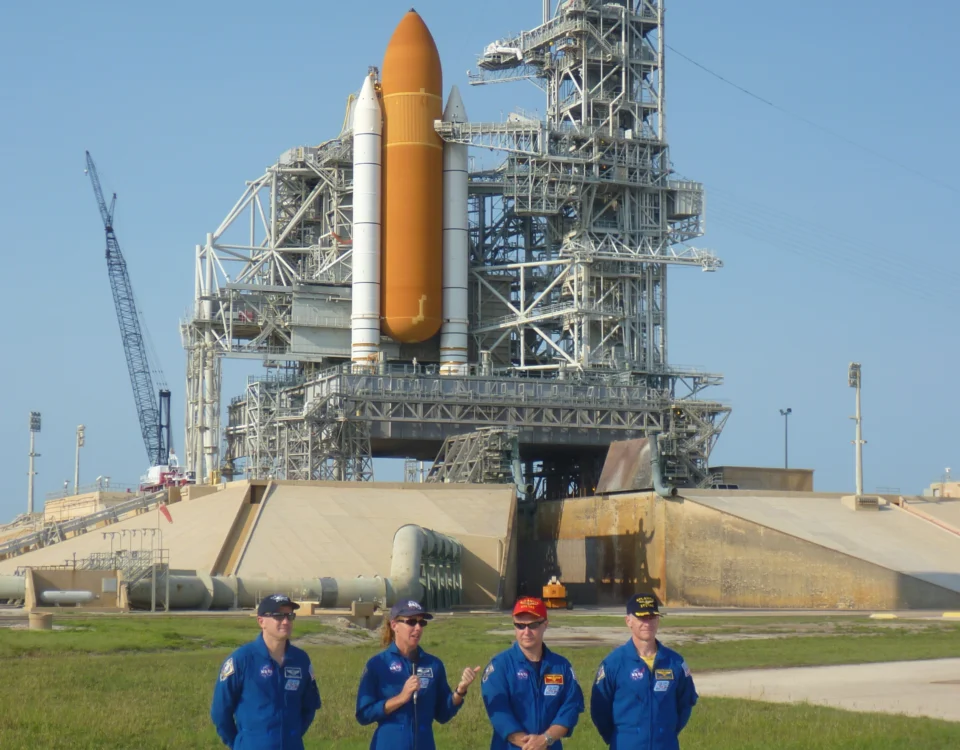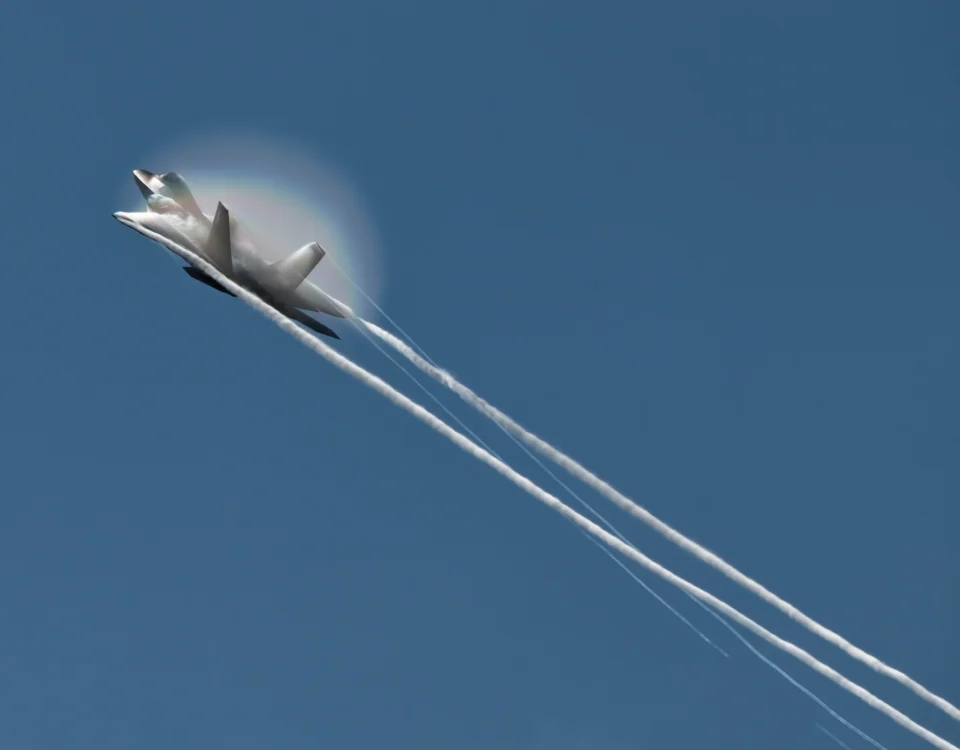Right now we’re on the verge of the release of the Fiscal Year 2013 budget for the space agency, and leading indicators are painting a not-so-pretty picture for a host of initiatives. One of the biggest hits looks like it will be taken by the Science Mission Directorate, the branch of NASA responsible for much of the exploration and research that perception-wise symbolizes the agency as an entity.
 |
| The Cassini probe represents just one of dozens of exploration projects created by NASA’s SMD branch. |
 |
| The James Webb Space Telescope fully deployed, a vision still years in the making. |
Of course, the discoveries that may emerge from the new space telescope based at its unique vantage point at the Lagrangian Point L2 – 930,000 miles from Earth – could make the huge expenditure seem like a worthwhile investment. But given its rising tab and its reliance on bold new technologies, the hoped-for returns are far from certainties in these belt-tightening times.





